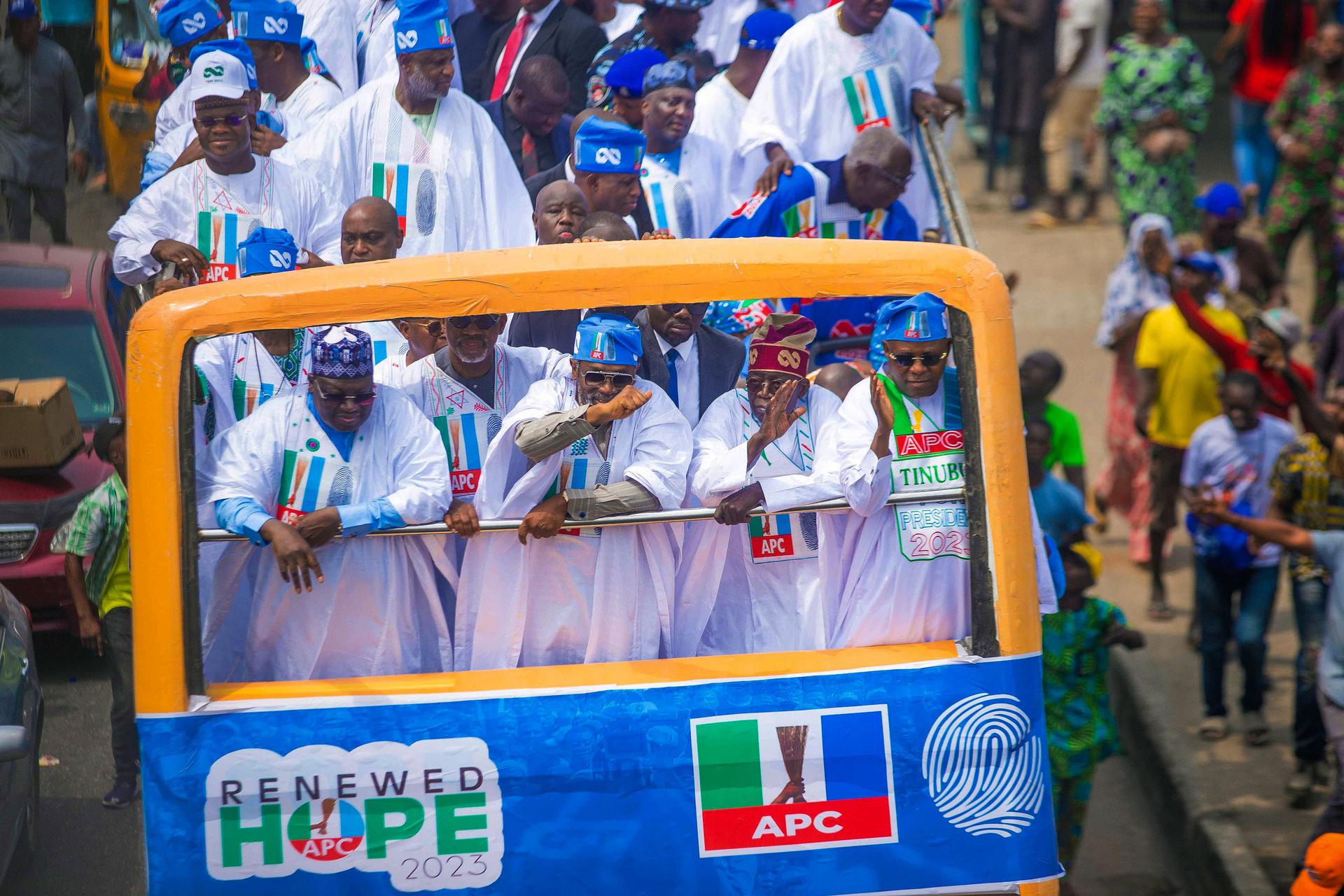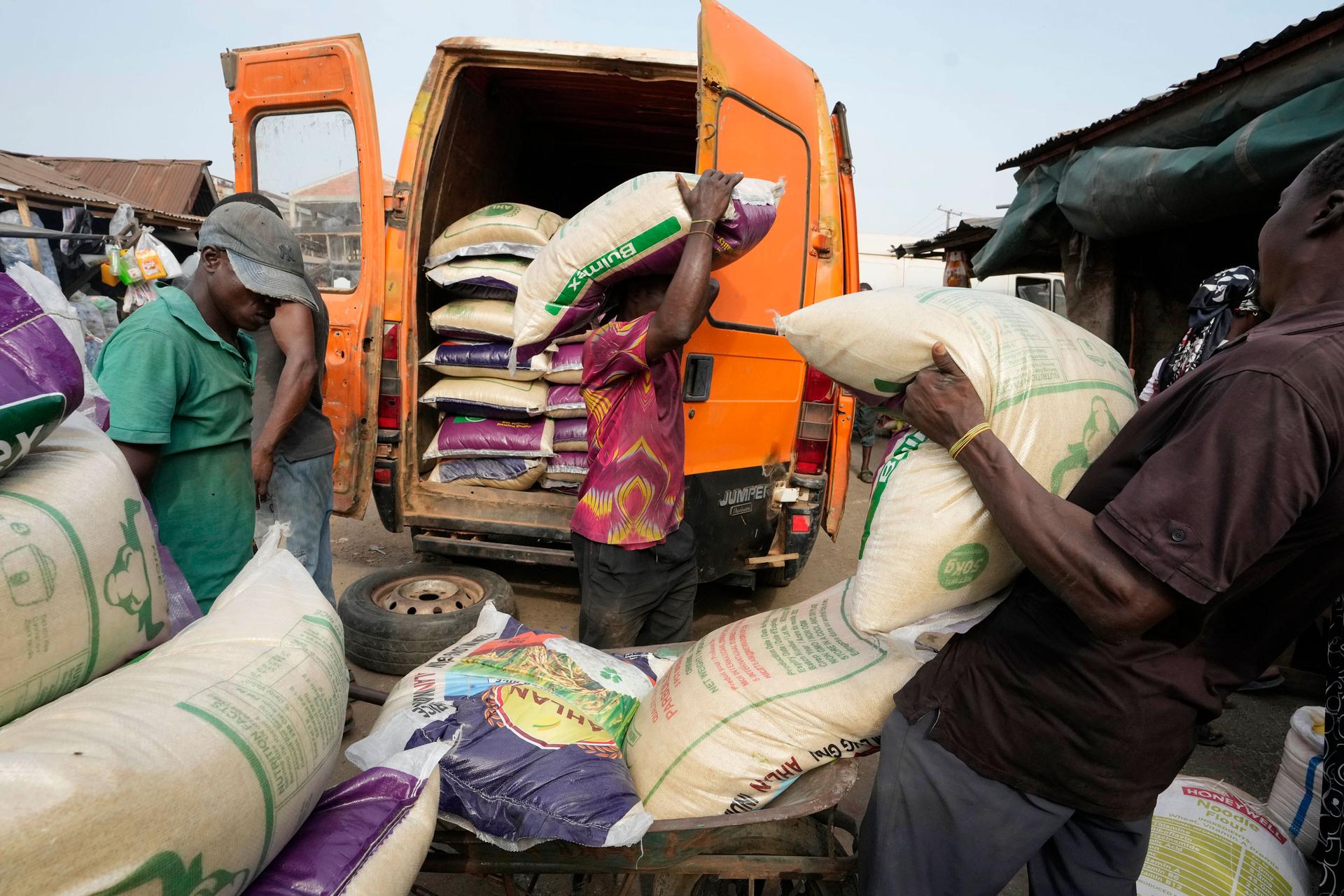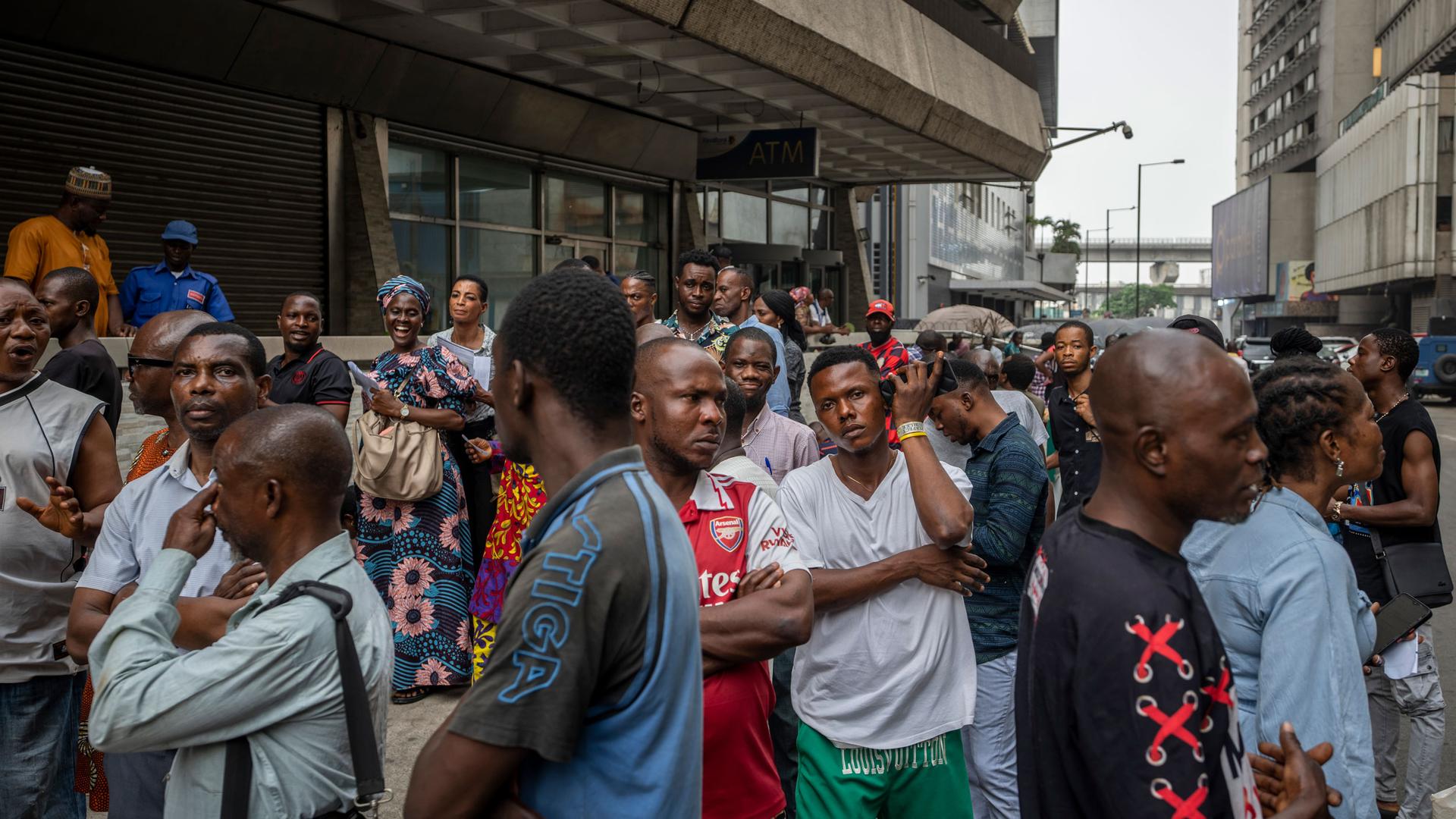By 9 a.m. in Lagos, Nigeria, 100 people were already lined up outside an ATM of a local bank — trying to withdraw some naira, the local currency.
This has become the new normal since the government decided to redesign the currency, a policy decision that went into effect weeks before the presidential election that will take place on Feb. 25.
Nigerians were told to turn in their old banknotes for new ones, but now, they are struggling to procure the new cash.
“Suddenly, no money in circulation,” complained Oba Femi, who was waiting in line.
“That is very bad for any country. It’s not too good for people to go through hardships to just source for funds which are their own in the first instance,” he said.
While the country’s middle class can get by using ATM cards and electronic money transfers, many Nigerians don’t have access to the banking system.
Femi added that many necessities, like public transportation, also require cash.
Still, he said there is an upside to the money scarcity.
“The politicians cannot use it to entice people to buy votes,” he said. “So, I think it’s still a welcome development.”

Bribing voters has long been a feature of electoral politics in Nigeria, causing many observers to speculate that the timing of the currency redesign was to make it harder for politicians to dole out cash to voters.
But right now, it’s the poor who are suffering the most. Many Nigerians don’t have access to the banking system, so they rely on cash to survive.
“I’m feeling it a lot. Because no money — no business,” explained Azubuike, who runs a small shop selling various home goods and food.
She said business has been down by 60% to 70%, and her usual customers are struggling to pay her.
As she talked, a young man tried — and then failed — to use his cellphone to electronically transfer money to Azubuike for food. The network is too slow.
“See, I want to do [a] transfer so that I can eat something. But I can’t. There’s no network,” said the man, who didn’t give his name.
“I haven’t eaten all day,” he said.
“Some people have money in their funds but they cannot withdraw it. It’s very bad. The situation is bad. You see a man crying because he wants to eat. You see a woman crying, children crying,” Azubuike said.
“The government should help us, the situation is worse.”

This currency redesign is compounding an already dire economic situation in Nigeria.
“It’s the worst I’ve ever seen,” Azubuike said. Like many Nigerians, the economy is top of mind as the nation prepares to vote this weekend on Feb. 25.
But with so many people struggling to survive, there’s been some concerns about whether people will turn out to vote, and whether they could be vulnerable to vote buying or bribing by politicians.
In the poor Badia neighborhood of Lagos, 29-year-old Sodnyo Dagunro said he is willing to sell his vote to the highest bidder.
“If anyone give me money to vote, I will collect. But I will ask them how much they want to give me first before I vote for him,” he said.
